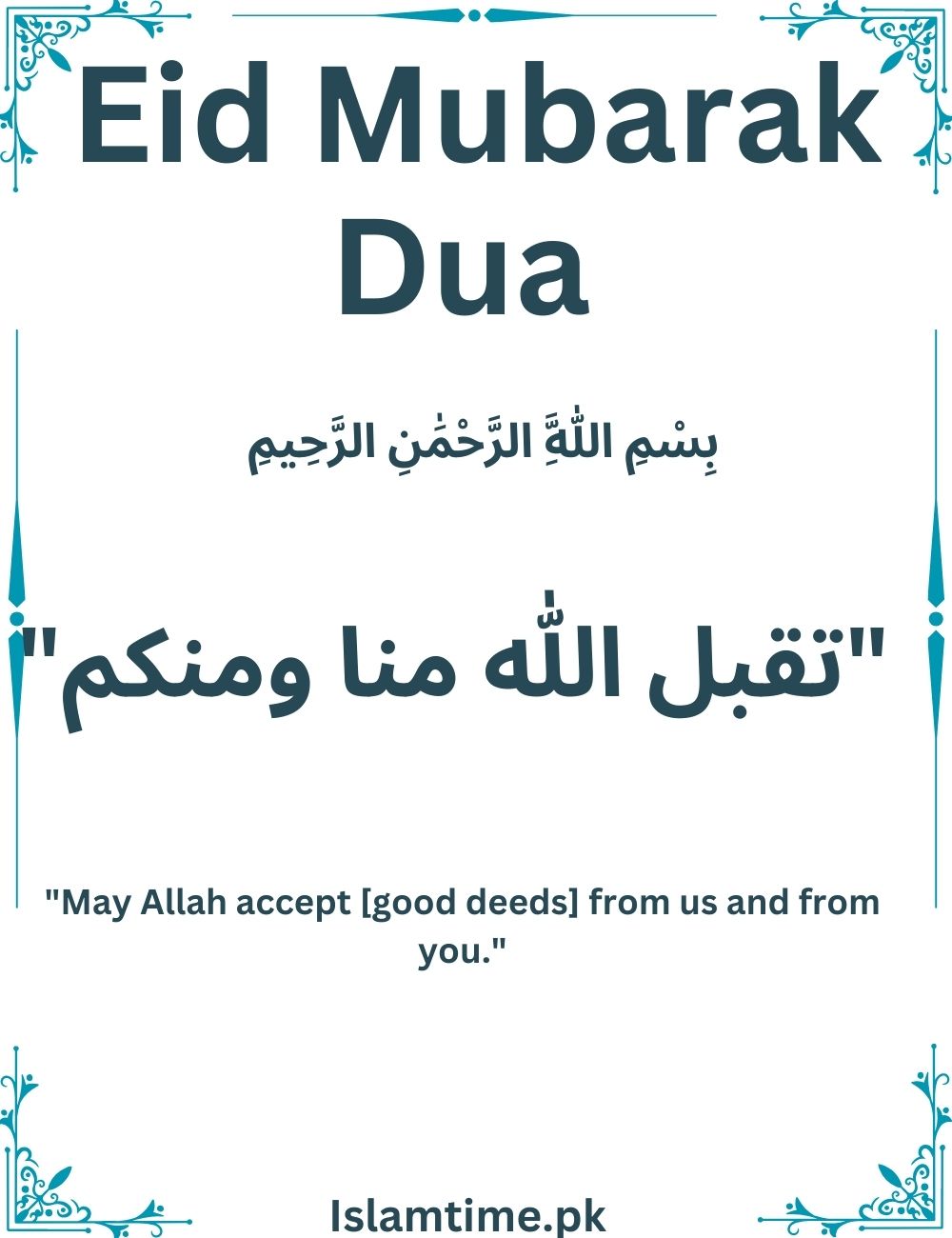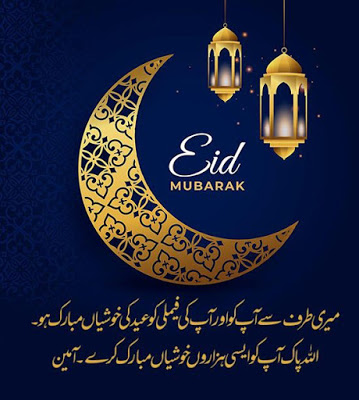Eid Mubarak Dua (عید مبارک کی دعا)
Eid is a significant and joyous occasion in Islam, marking the end of Ramadan (Eid al-Fitr) or the conclusion of Hajj (Eid al-Adha). It is a time of celebration, gratitude, and supplication. Here’s a comprehensive guide to the “Eid Mubarak” dua, along with the etiquettes and practices of Eid.
Eid Mubarak Dua:

The phrase “Eid Mubarak” itself is a traditional greeting meaning “Blessed Eid”. There are various supplications and greetings recommended during Eid:
General Eid Greeting:
"تقبل الله منا ومنكم"
"Taqabbal Allah minna wa minkum"
"May Allah accept [good deeds] from us and from you."
This dua is widely exchanged among Muslims to wish each other well and to pray for the acceptance of each other’s deeds.
Recommended Duas for Eid:
- Dua for Eid al-Fitr:“اللهم إني أسألك خير هذا اليوم، فتحه ونصره ونوره وبركته وهداه”
“Allahumma inni as’aluka khayra hadha al-yawm, fathahu wa nasruhu wa nurahu wa barakatahu wa hudahu”
“O Allah, I ask You for the good of this day, its victory, its light, its blessings, and its guidance.” - Dua for Eid al-Adha:“اللهم اجعلها لي ولأهلي سنة خير وبركة وامن وصحة وعافية وسعادة ورضى”
“Allahumma aj’alha li wa li ahli sanata khayrin wa barakat wa amn wa sihha wa ‘afiya wa sa’ada wa rida”
“O Allah, make it for me and my family a year of goodness, blessings, safety, health, wellness, happiness, and satisfaction.”
Eid Mubarak Dua In Urdu

Practices of Eid
Takbeer: Recite the Takbeer from the night before Eid until the Imam starts the prayer:
"الله أكبر، الله أكبر، لا إله إلا الله، الله أكبر، الله أكبر ولله الحمد"
"Allahu Akbar, Allahu Akbar, la ilaha illa Allah, Allahu Akbar, Allahu Akbar wa lillahi al-hamd"
"Allah is the Greatest, Allah is the Greatest, there is no deity but Allah, Allah is the Greatest, Allah is the Greatest and to Allah belongs all praise."
Eid Prayer (Salat al-Eid): Participate in the communal Eid prayer. This consists of two rak’ahs with extra Takbeers. The Imam delivers a sermon (khutbah) after the prayer.
Giving Zakat al-Fitr: Before the Eid al-Fitr prayer, it is obligatory to give Zakat al-Fitr as an act of charity to purify the fast and help those in need.
Sacrifice (Qurbani) on Eid al-Adha: For Eid al-Adha, the act of Qurbani (animal sacrifice) is performed to commemorate the willingness of Prophet Ibrahim (AS) to sacrifice his son as an act of obedience to Allah.
Historical Context and Significance
- Eid al-Fitr: Celebrates the end of Ramadan, a month of fasting, prayer, and reflection. It marks a time of joy and gratitude for the strength and patience shown during Ramadan.
- Eid al-Adha: Commemorates the sacrifice of Prophet Ibrahim (AS). It is a time to remember his obedience and submission to Allah’s command and to reflect on the virtues of sacrifice and devotion.
Real-Life Example
During Eid, Muslims around the world gather in mosques, open spaces, and homes to celebrate together. For example, families prepare special meals, exchange gifts, and visit each other to strengthen bonds. The communal prayers and festive gatherings reflect the unity and brotherhood of the Muslim Ummah.
Conclusion
Eid is a blessed occasion to express gratitude, celebrate with loved ones, and seek Allah’s blessings. By observing the Sunnah and making heartfelt duas, Muslims can enhance the spiritual and communal significance of Eid. May Allah accept our good deeds and grant us joyful and blessed Eids.